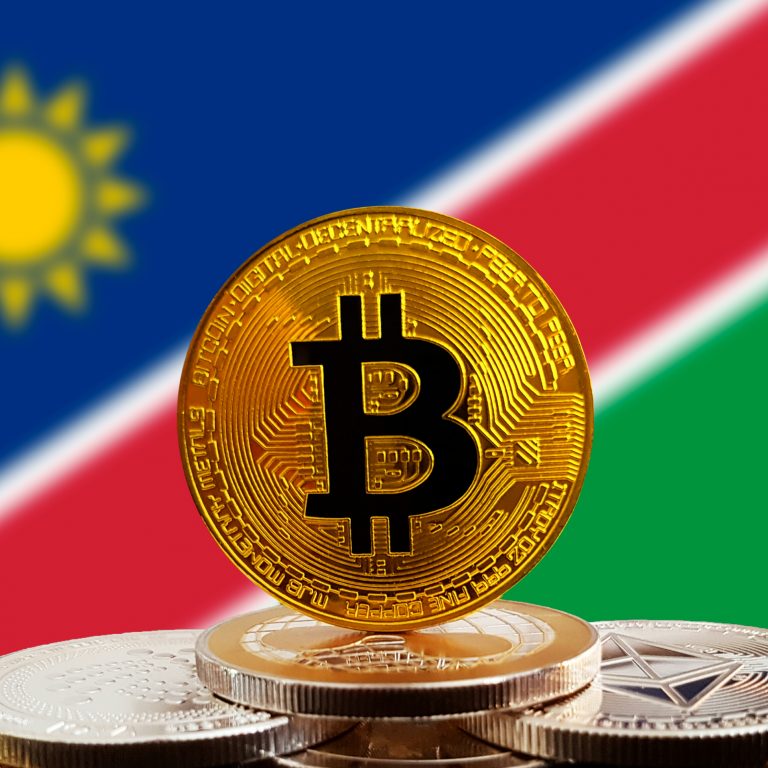Namibian Bitcoin Trading Platform BTN Perseveres Despite Partial Crypto Ban
source: Bitcoin News
2018. Nov. 13. 00:15

Bitcoin Trade Namibia (BTN), an emerging bitcoin marketplace, is trying to make things work for Namibians keen on investing in digital assets, even though it could take up to three days before buy orders are settled. However, in an industry where government forces crave control, the delay looks like it should be worth the wait.
Also Read: Iran Completes Development of Rial-Supported National Cryptocurrency
Namibia’s Investor-Centric Marketplace
BTN has adopted the know-your-customer and anti-money laundering requirements of the Bank of Namibia (BoN), the country’s central bank, giving it a chance of survival in an economy where the commercial use of cryptocurrency is banned.
“The idea is to provide a safe and secure on and off ramp for bitcoin for Namibians who have expressed increasing interest … in the cryptocurrency,” Tshuutheni Emvula, co-founder and chief executive officer of BTN, told news.Bitcoin.com. “We are of the opinion that bitcoin, at its fully realized potential, provides the Namibian entrepreneur and consumer the perfect open payment mechanism for a digitally connected world.”
Emvula said it will be “a long road” before that is achieved, but “it starts with Namibians being able to participate in the network’s activities by actually owning BTC. Through direct ownership, greater interest in BTC and its ecosystem on behalf of the owner is incentivized.”
Founded in March this year by a group of software developers, Bitcoin Trade Namibia touts itself as a “non-speculative BTC marketplace,” that allows people in the southern African country a platform “that does not work as an exchange” to buy and sell bitcoin using the local Namibian dollar.
Tshuutheni EmvulaBuyers transfer money to a BTN bank account number in exchange for BTC, which is sent to an address of their choice. The opposite is true for sales, on fees of about 2 percent for transactions that do not exceed 150,000 Namibian dollars (U.S. $10,500). The process for purchases can last up to 72 hours in the worst case scenario, although BTC delivery is generally completed within three hours of fiat deposit on the average. At press time, each bitcoin traded at 98,769 Namibian dollars (U.S. $6,913), a premium of about 9 percent on the global average price.
Refusing to discuss user numbers and traded volume, Emvula stated:
We do not keep or store any bitcoin on behalf of users. We do not have an open order book which allows users to trade bitcoin with each other. We provide buy and sell services on an individual client basis. However, BTN is working with institutional investors on issues of custodianship but these services are not open to our low volume and casual customers at this point.
Cryptocurrency Ban
Namibia officially banned the use of cryptocurrencies for commercial purposes in 2017. The Bank of Namibia did not specify penalties for violating the prohibition, but warned that “a local shop is not allowed to price or accept virtual currencies in exchange for goods and services.”
It said only that the Namibian dollar and South Africa Rand remained legal tender in the country, but remained open to possibilities offered by blockchain technology. Even though cryptocurrency-related activities remain very limited in Namibia, the central bank’s main concern centered around exchange control violations and issues of creation of money, which it said was its sole mandate.
Emvula, the BTN chief executive officer, believes BoN’s stance has been misunderstood. He detailed:
The myth that cryptocurrency is banned in Namibia is perpetuated by bad research and FUD. A look at the position papers released by the Bank of Namibia will correctly inform the reader that the bank warns Namibian nationals of the dangers of cryptocurrency due to their non-regulation. Nowhere do they mention that they actively prohibit the trading of cryptocurrencies.
Bitcoin Trade Namibia has yielded to the KYC/AML requirements placed on operators of financial services by BoN, something that has clearly aided the platform’s cause in an economy where digital assets are operating under caution. On security, Emvula said: “Given that we do not store investor funds, other major vectors of attack would come in the form of risky traders and we ensure to review each of our trades in the relevant manner as directed by our compliance policy and Namibian law.”
What do you think about Bitcoin Trade Namibia’s business model? Let us know in the comments section below.
Images courtesy of Shutterstock.
The Bitcoin universe is vast. So is Bitcoin.com. Check ourWiki, where you can learn everything you were afraid to ask. Or read our news coverage to stay up to date on the latest. Or delve into statistics on our helpful tools page
The post Namibian Bitcoin Trading Platform BTN Perseveres Despite Partial Crypto Ban appeared first on Bitcoin News.





